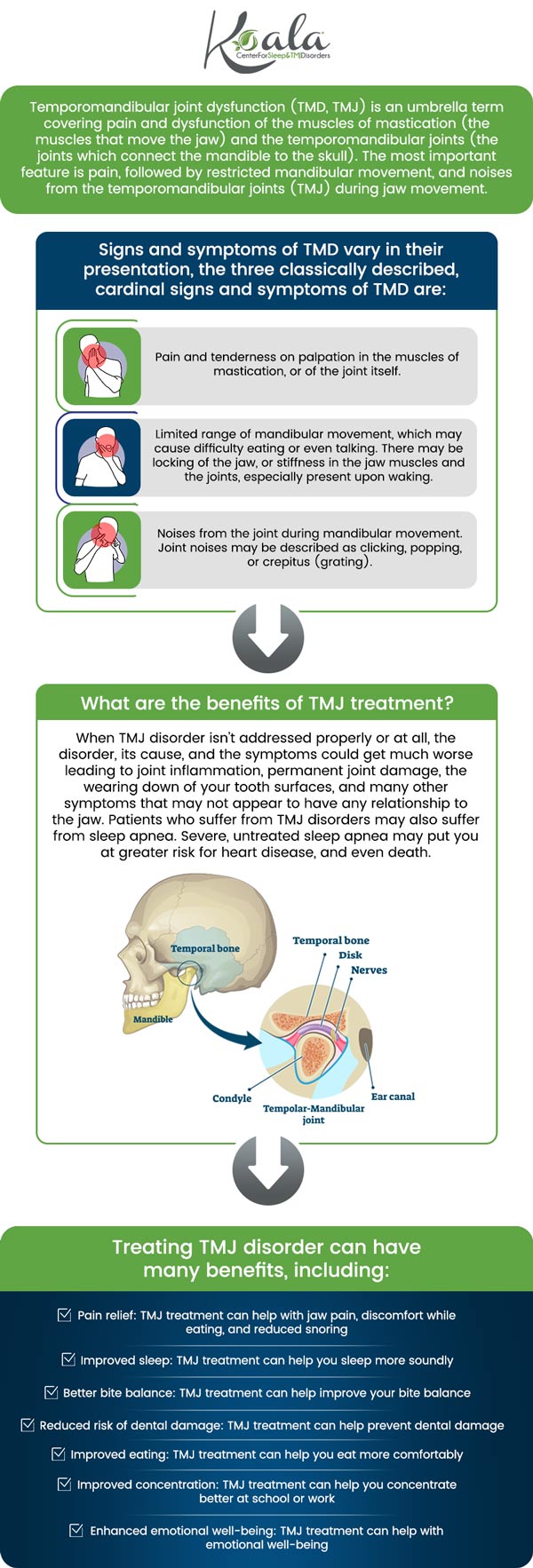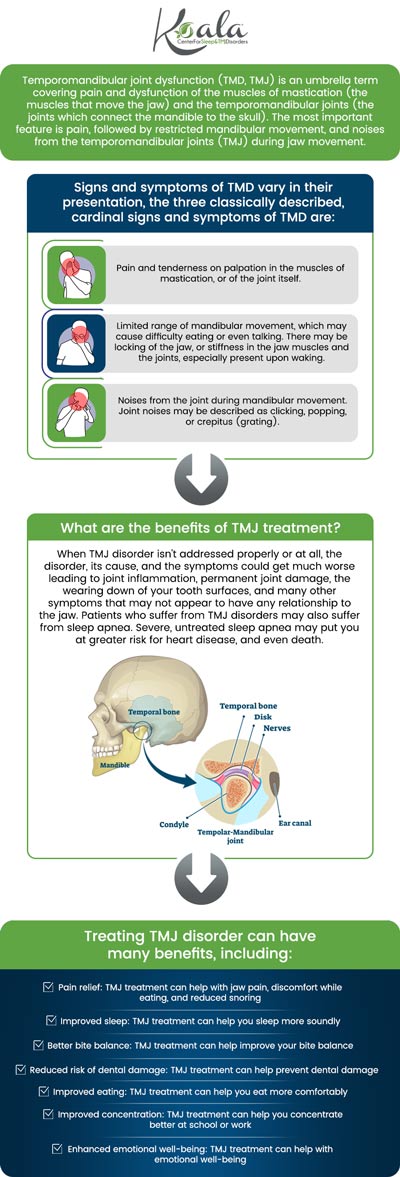Doctor and Dentists Who Treat TMJ Disorder
At Koala® Center For Sleep & TMJ Disorders, Our Experienced TMJ Doctors & Dental Staff Provide Solutions for TMJ Disorder, Orofacial Pain, and Jaw Pain at Our Multiple Locations Across the United States. Simply Call to Schedule Your TMJ Screening Today.




Table of Contents:
What causes my TMD symptoms?
What symptoms of TMJ disorder should I be aware of?
How can I help reduce my symptoms at home?
When you find yourself struggling to get through a meal without excruciating pain or wake up each morning with a headache and sore jaw, it could be the result of dysfunction in your temporomandibular joint (TMJ). TMJ disorder (sometimes called TMD) can make it difficult to sleep at night, eat lunch with coworkers, or laugh with friends when left untreated. Fortunately, experienced TMJ doctors are available at many locations nationwide to provide you with the care and support you need to restore proper function to your jaw and relieve your pain. At Koala® Center For Sleep & TMJ Disorders, our compassionate doctors partner with exceptional dental professionals to create customized appliances to help your body heal naturally.
There is not always an obvious cause for your TMD. Some patients will experience TMJ disorder as the result of a specific facial injury. However, more often, it is simply a product of tension or overuse. Adults and children of all ages can develop TMJ disorder and those who grind or clench their teeth regularly have a higher risk. You may also develop TMD if you have arthritis in your jaw. TMJ disorder can be the result of issues with the bones of the jaw or the soft tissue, including the disc that is present between the ball and socket parts of the joint. If this disc moves too much or not enough, it can cause pain that radiates from the connection of the joint into other parts of the face.
There are many different symptoms a person who has developed TMD may notice in their daily life. Some patients will experience headaches or difficulty sleeping, while others will notice clicking noises as they open and close their mouth or difficulty chewing and swallowing. You may feel unexplained pain that extends into your facial muscles, down our neck, or even into your shoulders. Some patients will also experience tinnitus, or ringing in the ears, and a locking sensation in their jaw. Because there is such a wide array of potential symptoms, it is important to discuss your issues with an experienced TMJ doctor who understands what to look for during a physical exam in order to identify and address the underlying cause of your discomfort.
There are many different steps you can take to try to reduce the daily pain you experience as a result of your TMD while you wait to see a doctor. Avoiding difficult to chew foods in lieu of softer ones and avoiding gum chewing can help you reduce some of the pain in your jaw as it opens and closes. Taking over-the-counter nonsteroidal anti-inflammatory drugs (NSAIDs) can help reduce swelling or pain in your facial muscles and using ice or heat can relax muscles and reduce inflammation. The way to effectively reduce your TMD symptoms is to speak with a doctor who has experience treating patients with TMJ disorder. You deserve the specialized care available and the TMJ doctors at Koala® Center For Sleep & TMJ Disorders can provide you with everything you need to restore healthy function in your jaw and reduce chronic pain associated with TMD.
Call Koala® Center For Sleep & TMJ Disorders today to find a conveniently located clinic near you, so you can speak with a dedicated and compassionate TMJ doctor.

Additional Services You May Need
▸ KoalaKIDZzz®
▸ Sleep Apnea
▸ Snoring
▸ TMJ Disorder
▸ Fatigue
▸ Sleep Disorders
▸ Weight Loss
▸ CPAP Alternative
▸ Oral Appliances




